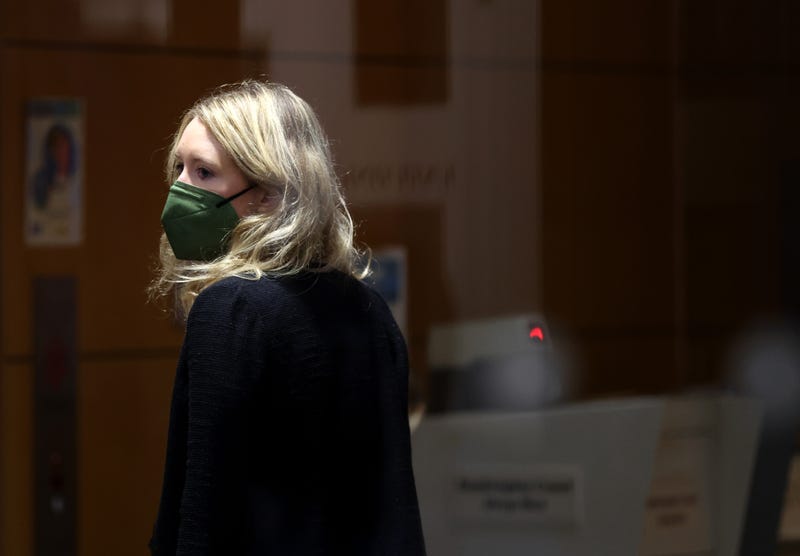
A jury in San Jose has found former Theranos CEO Elizabeth Holmes guilty of four federal fraud charges, acquitting her on four others and failing to reach a verdict on three more.
Holmes, 37, faced nine counts of wire fraud and two counts of conspiracy to commit wire fraud as federal prosecutors alleged she willfully deceived investors about the effectiveness of Theranos' blood-testing technology. The jury of eight men and four women reached its verdict on eight counts on Monday after seven days of deliberation, remaining deadlocked on three other charges.

The jury convicted Holmes on one count of conspiracy to commit wire fraud against Theranos investors and three counts of wire fraud against Theranos investors. She was acquitted on the sole count of conspiracy to commit wire fraud against Theranos patients and three counts of wire fraud against Theranos patients.
Jurors did not reach a verdict on three additional charges of wire fraud against Theranos investors. The New York Times reported that U.S. District Judge Edward Davila said he planned to declare a mistrial on the three charges, and that prosecutors and Holmes' attorneys agreed she wouldn't be remanded into custody on Monday.
Holmes could face up to 20 years in prison for each count.
"They certainly have enough to work with to send the message, not only to Ms. Holmes but to Silicon Valley, that these kinds of cases are now going to be taken very seriously," Steven Clark, a San Jose-based attorney and legal analyst, told KCBS Radio's Jeff Bell and Patti Reising on Monday afternoon.
Her attorneys argued that Holmes didn’t intentionally mislead Theranos investors, relying on overly optimistic reports from her colleagues and subordinates that the company's technology was working as promised. Holmes took the stand for seven days during the trial, testifying at one point she was under the impression one version of Theranos' proprietary test "could do any blood test."
Holmes' quick ascension and dramatic downfall as a Silicon Valley titan has been well-documented, and her trial attracted widespread interest from media and the general public alike. Onlookers lined up outside the Robert F. Peckham U.S. Courthouse before dawn during Holmes’ testimony, hoping to get one of a limited number of seats in the courtroom and an overflow chamber. Davila routinely chided attendees for typing too loud, threatening to ask individuals to leave his courtroom.
Testimony in Holmes' trial lasted 14 weeks due to procedural delays and others related to the COVID-19 pandemic, and the jury began deliberating on Dec. 20. The jury continued deliberating through Christmas and into the New Year, informing Judge Davila on Monday they were deadlocked on three of the 11 charges Holmes faced.
"I think what the judge was concerned about is the longer he kept them deliberating, the more potential for problems," Clark said Monday. "Because once these verdicts are read, then they're final. But while they're in the jury room, there's still not a final verdict."
Now that Holmes' trial has concluded, her former romantic and business partner’s will soon begin. Ramesh "Sunny" Balwani, whom Holmes alleged controlled and sexually abused her as part of her testimony, faces the same charges as Holmes. His trial is set to begin on Feb. 15, after it was originally scheduled for Jan. 11, due to the length of Holmes' trial.
Clark said he expected the government to wait to decide on whether to re-try Holmes on the three remaining charges following Balwani's trial.

